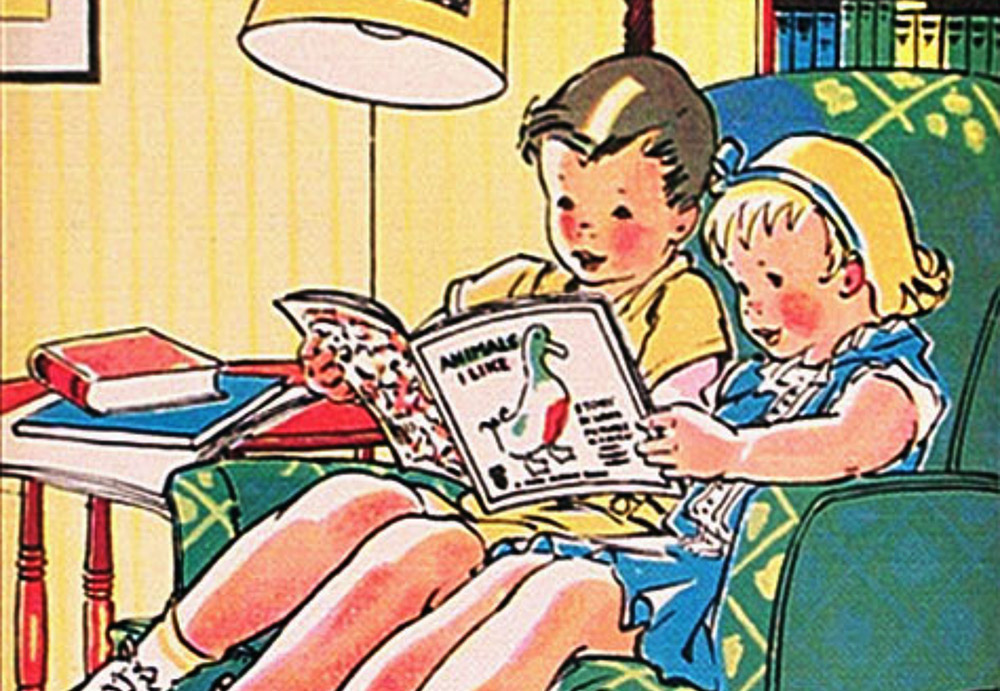
(Pixabay/Oberholster Venita)
"The most powerful words in English are 'tell me a story.' "
—Pat Conroy, My Reading Life
In ancient Ireland, the seanchaí were the custodians of history and tradition as they traveled from village to village entertaining and educating the common folk who could not read or write. They preserved all of Irish folklore and tales of wisdom with their stories.
I grew up feasting on stories. Some of my earliest memories are reciting for my mother the nursery rhymes she read to us from our treasured Mother Goose book. In my mind, I can still see it with its well-worn cover and colorful pages.
By the time we all had entered school, we were ready for new stories. My dad was a master storyteller. If we scratched his back, he would tell us about his childhood. When we stopped scratching, he stopped talking. To this day, I do not know which of his stories were true. As we grew out of his stories, we would sit engrossed at our grandfather's kitchen table as he talked about his years as a young man in the old country.
When I entered the novitiate, we were taught and well-versed in the narrative of the history and roots of our community. But here and there, we would pick up stories from the older sisters. We would carry meal trays to the infirm, and, if we were lucky, a few extra minutes before returning to the kitchen we were sometimes blessed with memories of their younger years in the community.
One of our former mother superiors was legendary. She was not from the earliest days, but before my time. One day, I asked the nurse in charge of the infirmary what that mother superior was like. The nurse was close to 80 at the time and told me I would have to ask one of the older sisters.
I did and I was told that Mother had a heart of gold and loved the children. That's all I got. Where did those stories go?
Over the years, as the community focused on history and plans for the future, so many stories were woven in between. Sad. Funny. Proud. Troubling. Passed along informally but stored away and always remembered.
We remember the giants and heroines. Teachers and nurses. The poets and artists. The troublemakers who in fact got so much done. From one end of the spectrum to the other. These same stories were often told at community meetings. At the breaks. Seldom at the microphone.
Our community is small and local, but our reach has been global and national. And full of stories. From Chile to Haiti to El Salvador to South Africa to Vietnam to Bangladesh. Letters from folks far away kept us informed with tales to cherish. To remember.
Advertisement
Since the 1960s, our cry has been for peace, nonviolence, women's rights and an end to racism and poverty. We had our very own jailbird who crossed the line at the School of the Americas. Nurses in a war zone. We had the development of brand-new ministries to serve the poor and vulnerable. A volunteer program. Retreat masters and spiritual directors. Scholars and writers. Pastoral ministers to ease the pain of the dying. Living in the poorest and most dangerous part of the city.
Marching every march for peace and for civil rights. Hoping and praying for a new church that serves all with love and dignity. All the while holding strong and powerful in our traditional ministries of education and health care.
Since our beginning, the years and efforts have been ripe with stories. Stories that belong only to us.
Currently, I meet each month with five of my sisters — we are ages 76-95 — for breakfast. We had all lived together at one time or another but now each of us lives alone. We refer to our gatherings as our house meetings.
Breakfast is not about eating. It is just an excuse to talk about what interests and motivates us. History. Politics. Community. Church. Mission. Books. Movies. Rachel Maddow.
And, of course, stories. Every month includes walks down memory lane. Stuff that is not written down anywhere but is engraved in memories and are shared sometimes on the verge of tears. Other times with full-throated laughter.
Narrative history of our past mission and ministries is important. But it is the stories and the sharing that hold us together and brings us to the table every month.
Narrative and history are for the world to know. These stories are not. Sharing them, sometimes the same ones over and over, is because they are worth it. The breakfast group keeps us elders young at heart and ever ready to take on the world, even if in a limited way.
"We tell ourselves stories in order to live."
—Joan Didion, The White Album
Yes, we feast on stories. Stories of success and heartbreak. Of laughter and tears. They feed our hearts and our imaginations. They fire us up. It is who we are. Stories full of love. Full of energy. Full of grace.
So tell our stories we must. Before they die within us.
Our gift to each other.







